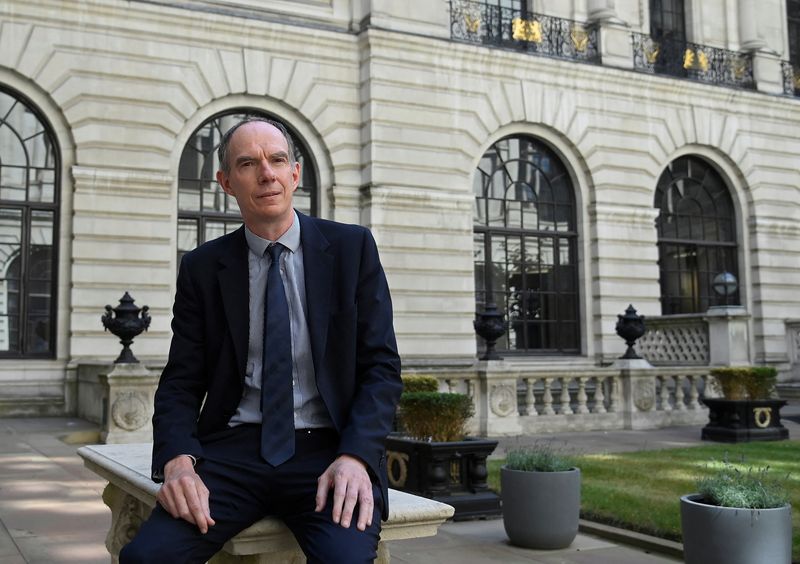Bank of England must ‘stay the course’, deputy governor Ramsden says
2023.04.21 18:56

© Reuters. FILE PHOTO: Bank of England Deputy Governor Dave Ramsden sits for a portrait during an interview with Reuters, at the Bank of England, London, Britain, August 8, 2022. REUTERS/Toby Melville
By David Milliken
LONDON (Reuters) -The Bank of England needs to focus on tightening monetary policy sufficiently to control inflation, and ensuring that no “inflationary mentality” develops, Bank of England Deputy Governor Dave Ramsden said in an interview published on Friday.
“When I look at where inflation is and where it needs to get to, I’m more focused on making sure that (we) stay the course in terms of the monetary policy decisions needed to get inflation back to target,” Ramsden said in an interview which will appear in Saturday’s edition of The Times.
“(High inflation) is a bigger risk than over-tightening,” he added.
Economists polled by Reuters expect the BoE to raise rates by a further quarter point on May 11 to 4.5%, in what would be its 12th consecutive rate rise since starting to increase interest rates in December 2021.
However, in recent months two members of the BoE’s Monetary Policy Committee have voted against further rate rises, arguing that the economy has yet to feel much of the impact of past increases.
Ramsden said he was concerned that seven months of double-digit inflation risked embedding longer-term expectations of high inflation among businesses and the public, which could lead to more persistent inflation.
“We need to make sure that an inflationary mentality doesn’t develop in the economy as we’ve seen in previous periods,” he said.
Ramsden, who is responsible for financial markets and banking, said the BoE remained “very vigilant” about market risks after the collapse of Silicon Valley Bank and Credit Suisse.
Echoing comments from Governor Andrew Bailey, he also said that it was important for the BoE to look at Britain’s system of deposit insurance.
“It’s really important that we learn the lessons of the last few weeks,” he said.
“When something goes wrong, someone has to pay for it. And then the question is how much do you pay for it up front by funding deposit insurance, and who does that funding.”








